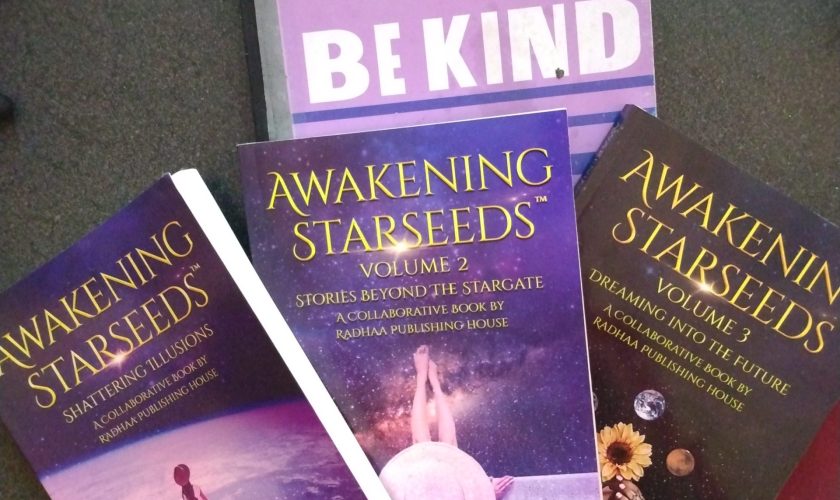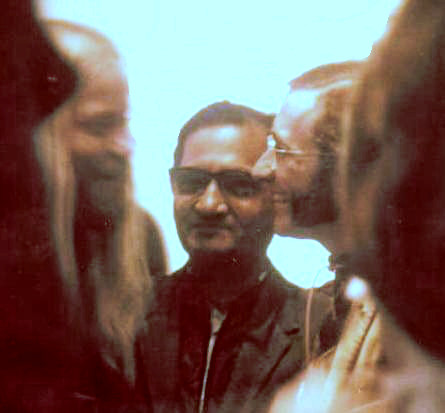How we view our history and future can be skewed, or even screwed if we don't see either well. I promised my readers I would…
Women, Wonder, and War
From Texas to Tehran, societies scurry to placate the power of those posing as pious – instead of affirming and advancing inherent intelligence and integrity. Modernity fears its own success. Instead of claiming and furthering the steady progress of science and the Enlightenment, it falls prey to those resentful of both. Fundamentalist advices to “have faith” or to “submit” turn us from knowledge, freedom, and responsibility, towards gullibility and obeisance. Decent souls, questing for what is good, flock to church and mosque only to be misled: women repressed, wonder reduced, and war recommended.
At their worst, the three great monotheistic religions are modern snakes in the garden, subtly tricking us out of an enjoyable and ethical relation with our selves, each other, our garden, and our God. Ironically, the solution stands hidden in plain sight. The most overlooked scripture passage is also the most obviously important. The Torah, New Testament, and Koran all rest on what we call the Old Testament, which itself rests on creation stories telling an obvious but misinterpreted lesson. Could we welcome the worth of women, weave science into religious wonder, and ward off World War III? We can. Ladies and gentlemen, turn to Genesis One, found on page one of your Bible.
Genesis One is as profound and important as it is simple and direct. This is the six stages of creation story. Elohim (a god name comprised of singular and plural components, as well as both male and female elements) says “Let there be light” and there was light and God called the light “good.” This same structure runs through all six stages, from light to matter, to water, to plants, to animals, to humans, “male and female He made them in His image” goes the odd pronoun-restricted phrasing. Every bit of natural creation, God calls good.
Three important points should be admitted: it is evolutionary; it honors women equally with men; and it is all called “good” by God. Seen all together in its cosmic wholeness and aliveness, Elohim God declares it, “very good.”
I agree with God on this. Unfortunately, religions do not.
As a humanist, I don’t think scripture makes things true, but it can mark them as true. This amazing universe that gives us birth and sustains us is “very good.” I was never comfortable with Protogoras’ “Man is the measure of all things,” for I wanted to change it to “Humans are the measurers of all things.” That the things are there to be measured is even more admirable than our abilities to make those measurements. We don’t make creation; it makes us. We should honor, protect, and further this astounding, precious process.
Note three brief final points before we leave Genesis One: the crucial advice to “replenish the earth” and “have dominion” (which are as today’s key words “sustainable” and “sovereignty”) and that there is no demand by God for worship or obedience.
Now, turn the page to the well-known and tragically misinterpreted second creation story found in Genesis Two and Three. Though creation is complete in the first story, it is created again in the second. YHWH God (a singular and masculine name) creates plants and animals in the desert, makes Adam out of the mud, makes Eve out of his rib (back in the days when women could take a ribbing), and sets them free in the abundance. He admonishes them though to not eat of the “tree of the knowledge of good and evil.” But a subtle deceiver, in the guise of a snake, tricks them into eating. Suddenly, they realize they are naked and so cover their bodies and try to hide from God. God, seeing their shame, expels them from the Garden into lives of toil and trouble, and places a union of the opposites symbol – a cherubim with a flaming sword turning in all directions – to bar their return. So starts the many stories of covenant, failure, guilt, judgment, wrath, forgiveness, and redemption.
This story is rife with potential causes: a vague history of the dawn of agriculture, an unconscious memory of emerging from mother’s womb into identity and the rigors of life, etc. To say that the fruit was sexuality is ironic, for it wasn’t sex itself, but the judgment that sex is shameful, that caused the fall. There was no shame in being naked, even with their God, until they began the alienating process of judgment, shame, hiding, blame, and expulsion.
Taken together, these two cosmogonic creation stories create a lesson as obvious as it is overlooked: what God created and called “good” was lost and ruined by dividing it into the alienating opposites of a false sense of good and evil. Evil is not addressed in Genesis One, but perhaps we can extrapolate that whatever alienates us from Nature and our own inherent goodness is evil. The judgmental and reactionary mind, so prevalent among stern religious types who like to dominate others with their thought, but also present to some degree in most humans, is the alienator.
Let’s apply this to our three concerns, women, wonder, and war.
Sex was not the sin, but shame for sex was the result of the false judgment that it was wrong. If there is anything more powerful in the human than an interest in sex it is the propensity to be shamed about it. Shame and blame divide us from this normal, natural human interest. No more extreme example can be found than the practice of clitorodectomy of young girls. The most tender and pleasurable spot on women is attacked with the edges of tin cans and broken glass, mutilating their bodies, emotions, and minds, in order to keep them from later wanting sex.
The patriarchal oppression of women is still all too common in much of the world. Of all the revolutions in history recently, none is more threatening and promising than women’s liberation. From Elizabeth Cady Stanton to Mary Daly, we see the gradual but sure rescue of the worth and participation of half the human race.
The misplaced blame women inherit from the story of Eve is part of a fall from the obvious worth of women as affirmed by God in Genesis One. What if women were honored for their sexuality instead of shamed? What if women were valued as of the image and likeness of God in all the cultures which claim to honor that scripture?
So too has our wonder been impaired. In the fourth century Saint Augustine, coming from a dualistic Manichean perspective of good spirit / bad flesh (and world) reasoned thus: When you put a straight stick in the water and it appears to bend, it is proof you can’t trust your senses. Instead, trust the church. For a thousand years, reason wasn’t the rational investigation of the changing phenomenal world, it was what the church taught about the unchanging nature of God in the invisible world.
What is that nature? Building on Paul’s reading of Genesis, he declared we all are born with Original Sin, flawed by the sin of Eve and Adam. By their disobeying God they were expelled. By our obeying church and emperor and believing in magic sacraments we are redeemed, he taught. Turn on the TV on Sunday morning and you’ll hear the modern version: by faith and grace alone are ye saved. Forget intelligence, forget integrity, forget ethics; believe to be forgiven and escape hell.
Elaine Pagels is right to bring to our attention the other fourth century theologian, John Chrysostom. He, building on Genesis One, taught that God created us free and wants us to fulfill our sovereignty. Could this be the meaning of that otherwise problematic word “dominion”? Perhaps it is by obeying the snakes of the world, be they priest, pope, or emperor, that we violate our own inherent sovereignty and so fail Creator and Creation. It is as Emerson wrote: “God will not have his will be made manifest by cowards.” It is as our faith affirms, “the free and responsible search,” and “the right of conscience.” It is as one country eventually came to acknowledge, that we are “endowed by our Creator with certain unalienable rights.”
If it were gladly affirmed that we are born of and with an evolutionary process, our humanistic freedoms and responsibilities might be put to serving this great goodness. Science might be seen as a deistic endeavor, investigating the inherent substance and laws of existence as a way of delving into the divine wonder of nature.
We needn’t cling to the old cozy view of a small, human-centered world, bowing to presumed religious authority, denying the dearness of nature, fearing and resenting the awesome scales of space and time science has recently presented. A cubic centimeter contains 45 billion, billion molecules of air. A similar incomprehensible number counts the stars in our heavens. Though we can’t travel beyond our own solar system, it comes to us, as the planet that blasted out the moon from our earth, or the asteroid that ended the dinosaurs. We taunt bad weather and toy with viruses, barely realizing we could live well on earth for millions of years to come were we to do it right, which we’re now not.
Though reality is vast and dangers daunting, we can and must accept it. Researchers, teachers, physicians, ecologists, and many others would be doing religious work in what many now feel is a de-sacralized realm. Instead of evasive religious answers, “God did it,” or “God will fix it,” scientific discovery, sustainability, and innovation would be our human responsibility and opportunity. We free, fallible, able humans would honor whatever Creator there is by tending this good Creation.
For example, consider the recent understanding of our brain as a biophysical realm having social consequences. Evolution not only allows humans their abnormally large neo-cortex, but includes a nuanced sensitivity to our mammalian heritage. Mammals care for their young, singing to them, playing with them. We are attuned to facial expression, sound of voice, sense of touch and smell. The limbic brain looks for connection whether our thinking brain notices or not. The amygdala, central in our being, reacts instantly, but is ingrained by past emotional trauma and by training. Teaching us to be judgmental and reactive, taunting us regularly to be wary of crime and attack, sets us up to believe we’re all rotten and that we need to kill rather than be killed. This influences our economic exchanges, our philosophy of government, and our foreign relations. But the meditative approach to our judgments and reactions tempers and heals amygdalic injury, changing blame, shame, and divisiveness into compassion, understanding, and inclusiveness. Inclusive loving-kindness, healing, and love can be cultivated in our brains anew even as it used to be encouraged in our religions.
Instead, the fundamentalist aspect of all three theistic religions drives their adherents into self-righteous zealotry, exacerbating ages-old prejudices and cycles of vindictive revenge. They wage jihad on us; we wage indiscriminate revenge on them. The meaner aspects of the scriptures are mined to rationalize rampant cruelties. Hideous poisons and sloppy agonies taunt World War III. Religious types on both sides egg it on with eager egoic glee, bolstered by preposterous fantasies of virgins in heaven or the rapture of escape. Good people seek answers in church and mosque, only there to hear the hiss of the same old snake.
This good world, all women and men, our progress in civilization, the promise of tomorrow – these should not be delivered to ignorant, arrogant fanatics. Unitarian Universalists don’t own the Genesis creation stories, but we can live up to our own scriptural tradition and to our ethical responsibility as freeborn human earthlings, by recommending to humanity’s religions and the secular world a renewed understanding of just what really is good.
Trust thyself. Support others in being themselves. Form communities that foster healthy, healing relations with humanity and earthlife. Along with the natural forces of the Creator within you, be co-creative.
Reverend Brad Carrier
For the Unitarian Universalists of Grants Pass
Grants Pass, Oregon
C March 6, 2005
Subscribe
0 Comments






